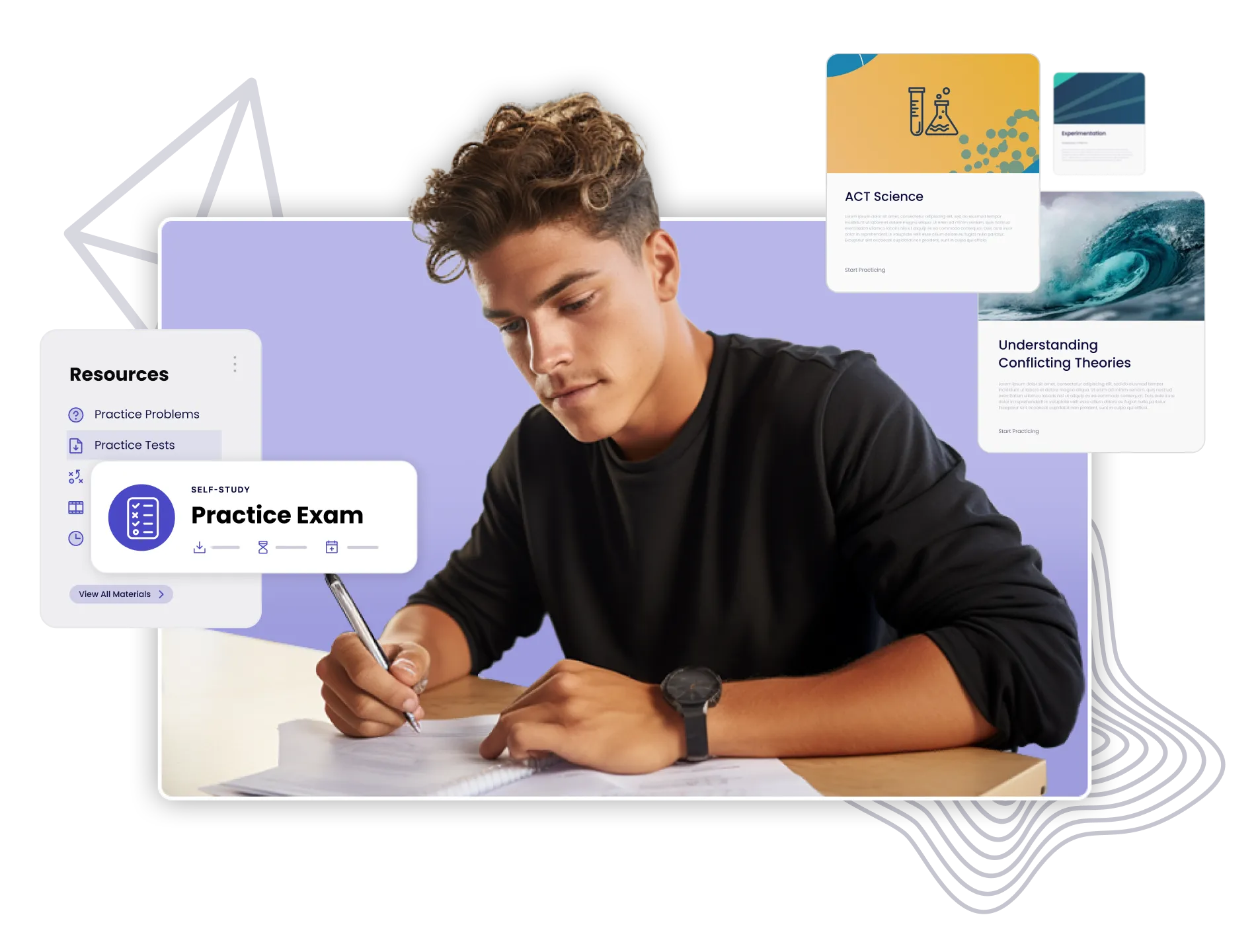Anti-Procrastination: Study Methods for Managing Time Effectively

All the experts–teachers, researchers, and parents who were once in your shoes–will tell you that cramming the night before an exam is far from an effective study strategy. You overload your brain and can’t process all that information too quickly. You sacrifice sleep and aren’t ready to perform at your peak. And then, ultimately, even what you do remember on test day you won’t remember when it comes time to use that knowledge in the future.
“Try not to be a crammer” isn’t new advice. But when tests come nearer and you don’t feel ready, cramming inevitably feels smarter than doing nothing. So, how can you prevent procrastination? By taking a few small steps every week to be so prepared for every test, cramming would be an absolute waste of time. With the help of Varsity Tutors, you can commit to overcoming procrastination.
1. Create a Study Schedule
- How: Use a calendar or planner to highlight the days and topics for each of your tests, and block off small blocks of time in the weeks before each to review notes, practice flash cards, reread chapters, and give yourself small, manageable study sessions so that you don’t have to save it all for one, big, inefficient cram session. Planning ahead ensures no due dates or test days catch you off guard.
- Why It Works: Spreading out studying over multiple days allows for better retention and understanding of the material and gives you time to ask for help if something just doesn’t click. Building good study habits in your free time will make schoolwork feel like a breeze. It also feels very nice knocking off a to-do list!
2. Active Listening, Reading, & Note-Taking
- How: Learning is an active process. While a lot of your time is spent being quiet and sitting still–listening to a teacher, sitting down and reading a book or handout–you should ensure you’re an active participant in what you’re learning. Take notes as you go, connect ideas with diagrams and arrows, and summarize lessons to yourself in your own words before moving on. If you can’t summarize what you just learned or aren’t sure what was noteworthy* enough to take notes, that’s a great indication that you should ask a teacher or tutor for help–they’re there just as much to teach you how to learn as they are to teach you that subject.
- Why It Works: Active learning keeps you engaged in the material, helping you process and remember information better. Regularly reviewing notes reinforces learning and identifies areas needing further review. It's easier to stop procrastinating when you’ve already pinpointed where you struggle most.
*That’s the exact definition of noteworthy! Something important enough to want to write it down in your notes.

3. Daily Review Sessions
- How: Spend 10-15 minutes daily to conduct a self-study session and review what you learned that day and what you need to do to understand or remember it better. This can be something you do on your bus ride home, or between brushing your teeth and turning off the light: go class by class and ask yourself a few simple questions: what did we cover, what was important or interesting, how well do I understand it, and if the answer is “not well enough” what can I do to get better? These short, daily recaps will help you commit key themes to memory and develop a more active plan when you need to study more.
- Why It Works: Consistent daily review prevents information overload and helps transfer knowledge from short-term to long-term memory. This habit also makes it easier to retain information over time.
4. Form or Join Study Groups
- How: Form a study group with classmates to discuss key concepts, quiz each other, and clarify doubts. Meet regularly even if no one has fallen behind or asked for help, so that collaborative study is just part of your routine.
- Why It Works: Explaining concepts to others and hearing different perspectives deepens your understanding. Plus, study groups make it easier (and more fun) to commit to regular, proactive study. Formulate questions for more tips on how other students manage their time effectively.
DID YOU KNOW? Varsity Tutors offers review classes for all of your high school math, science, and AP classes, making it easy for you to find a schedule and group for collaborative after-school study. View Classes.
5. Practice Active Recall
- How: After studying a section, close your notes and try to recall the key points from memory. Write them down or say them out loud. Then, check your accuracy and review any missed points.
- Why It Works: Active recall strengthens memory by forcing your brain to retrieve information. This process helps solidify knowledge and makes it easier to recall during a test.
6. Practice, Don’t Just Read
- How: Whether you do practice problems, quiz yourself on flash cards, or highlight or transcribe your notes, force yourself to come up with answers or to write something down as you study. That way you’re engaging the creative, “doing” part of your brain the way you will when taking a test.
- Why It Works: On a test, you need to not just remember content, but “perform” with it. Active studying helps you not just see the material but put it to use, which makes it easier to remember and helps to replicate the process of application that you’ll need to do on test day.
DID YOU KNOW? Varsity Tutors offers adaptive practice quizzes for all core high school subjects. Looking for a quiz? Find your subject here and scroll to the practice section. Find Your Subject
Let’s face it: we know cramming isn’t the most effective way to study but until we take proactive steps early in the school year to avoid it, cramming is the only study tool we’re left with. So implement any or all of the methods above and you can go from an inevitable crammer to an anti-crammer. Your stress levels, sleep patterns, and report cards will thank you.

